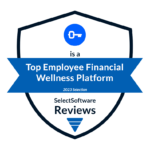What is Estate Planning and do I need it?
Worrying about the future can steal joy from the present, but if you plan for life’s unavoidable events, you can expect to be more at peace. Estate planning is the process of making decisions about how your affairs will be managed if you are unable to either because of death or incapacity. To ensure that your wishes are carried out, there are legal steps you can take to manage your medical care, your children’s care (if they are minors), and your assets.
These steps—together known as estate planning—involve creating legally effective plans aligned with your circumstances. Estate planning addresses vital questions that, in the absence of a legal plan, are left to a system of default laws that may not be in line with your wishes.
To get started with your own planning, think about how you would answer the following questions:
- What should happen if you become medically incapacitated, including what types of medical treatments you wish to receive to prolong your life?
- Who should act as a guardian for your children if you pass away when they are minors?
- What will you do with your assets upon your death, including steps to minimize potential taxes, fees, and administrative burdens on your family?
What kind of estate plan is for me?
What most people need for a solid estate plan is a last will and testament, durable medical and financial powers of attorney, and a healthcare directive. Having these documents in place will allow you to have a say in what happens after your death or during times when you’re unable to manage your affairs. They can help avoid probate (a court-supervised process of authenticating a last will and testament), reduce disagreements between family members regarding how to handle things, and cut court costs related to these decisions.
If you have significant assets, family-owned businesses, or special situations (e.g., children with special needs), you may need more complex tools, such as trusts, for managing end-of-life issues. In addition to talking to your Brightside Financial Assistant, you can consult estate planning specialists, such as attorneys, financial planners, accountants, business advisors, and insurance agents, to receive personalized guidance on creating and executing your estate plans.
How can I create a will and other end-of-life documents?
An estate planning attorney can draft wills and end-of-life documents. Many employers offer legal employee benefits, such as employee-assistance plans (EAPs), that include free initial consultations with an attorney and discounts for further services. Some employers also offer legal plans that may cover the drafting of end-of-life documents. Brightside can help you navigate all of this.
You can also use will-preparation software, which typically varies from free to less than $100. (Tip: You can potentially save money on an estate planning attorney by using software to prepare a draft will in advance of a review by an attorney.)
In some states, you can create a legally-binding will by writing and signing it on your own. This is called a holographic will, and it may be useful if creating a will is time sensitive
Estate planning eases stress on you and frees your loved ones from having to make important decisions in difficult times. Whether your assets and care are simple or complex, estate planning will make sure that they are managed the way you want.
If you have more questions or want to get started, contact your Brightside Financial Assistant.
Brightside Client Story
Wes came to Brightside for help with estate planning after inheriting some money from his mother. Additionally, he wanted to pay for his son’s tuition and rebuild his credit, which had been negatively impacted by his recent divorce. Wes felt anxious about his upcoming trip and decided to update the beneficiaries of his life insurance policy. His last update was before he divorced. His brother was listed as a beneficiary since he is the executor of the estate and wasn’t sure how things would change now that his son is an adult. He contacted his Brightside Certified Financial Planner™ Brittnie for help.
How Brightside Helped
- Wes and his FA discussed differences between naming individuals versus trusts as beneficiaries, his FA encouraged him to work with his insurance agent to make the updates.
- Wes’ FA uncovered additional gaps in his current estate plan he needed to discuss and update with his attorney.
- Wes added $30,000 he received from his mom’s passing to the 529 plan for his son’s college tuition, set goal of $15K to save up by August 2023.
- Wes’ FA helped him move from a secure card to a traditional credit card to start building his credit, improving his score by 31 points.
“I appreciate all of Brittnie’s help on organizing everything and now I just have to keep it going.”
Register today to enjoy an easier tomorrow.
Already registered? Contact your Brightside Financial Assistant to help with your specific financial situation. Chat Now.
Did you know?
67% of American adults don’t have a will.
https://www.caring.com/caregivers/estate-planning/wills-survey/





